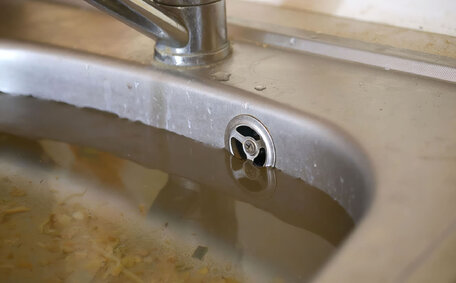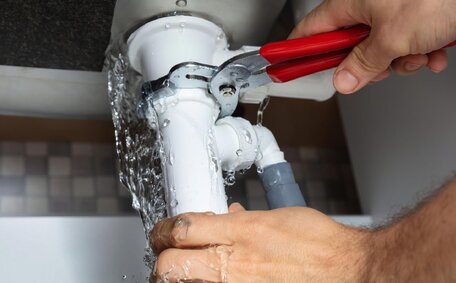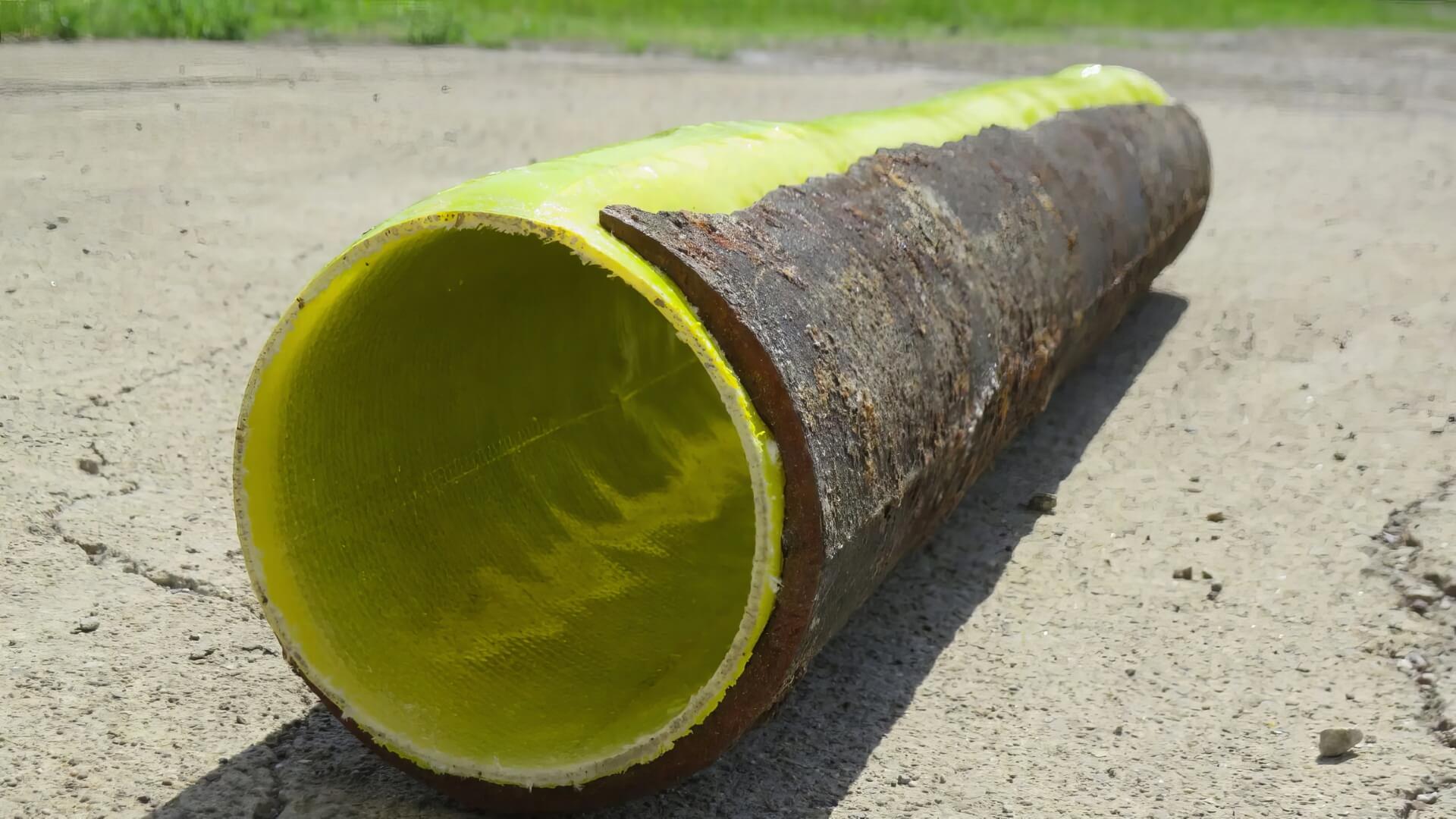As winter approaches, it’s important to prepare your water heater to ensure continuous performance and prevent potential damage during the colder period. Newtown Plumbing’s skilled plumbers excel in winterising water systems effectively.
Cold temperatures can wreak havoc, leading to the potential for a burst pipe by causing components to contract and pipes to freeze or even rupture. Proactive winterisation of your water heater through inspections, flushing, adjustments, and insulation enhances efficiency and extends its lifespan.
In this article, we will discuss key steps to winterize various hot water systems for winter water readiness, including:
- Switching off the power and water supply
- Emptying and cleaning the tank interior
- Checking anode rods and valves
- Adding insulation to vulnerable pipes
- Modifying the thermostat’s temperature setting
- And more...
Following these guidelines ensures your water heater remains operational in freezing temperatures, also conserving energy and reducing costs. For bespoke advice on preparing your unit for winter, reach out to Newtown Plumbing for expert guidance.
Draining and Flushing the Tank
Annual tank drainage and cleaning are vital to eliminate sediment that hampers efficiency. Follow this guide, integral to your maintenance ritual:
- Switch off water and power to the water heater at the circuit breaker panel and the gas line if it’s a gas unit.
- Shut off the cold water supply line leading to the heater tank.
- Attach a garden hose to the drain valve at the bottom tank area.
- Open the drain valve and allow water to flow out through the hose into a floor drain or outdoors.
- Open hot water taps in the house to allow air into the tank and water to drain out faster.
- Once the water is sediment-free and clear, shut the drain valve.
- Close hot water taps and turn cold water supply back on to refill the tank.
- Once the tank is full, restore power and check for leaks at the temperature set.
An annual flush of your gas hot water system maintains its performance by eliminating silt and scale. Uncertain how to proceed? Our skilled plumbers can oversee the process for you.
Removing Sediment Buildup
Inspect your water heater often to tackle sediment deposits from minerals in the water, which coat the heating element and impede its efficiency.
Carry out an annual tank flush as previously described to ensure peak performance, removing silt and scale to keep the system functioning effectively.
We use high-velocity water jets to scrub inside tank surfaces, restoring functionality.
By proactively deciding to flush your water heater regularly, you’ll maximise energy efficiency and extend the life of the unit. Contact Newtown Plumbing to get your hot water flow checked or if you need assistance servicing your unit.
Replacing the Sacrificial Anode
Sacrificial anodes are metal rods inside hot water system tanks designed to corrode first, before the steel tank. Checking and replacing these anodes every 2-3 years helps prolong tank life.
This cathodic protection preserves your tank. Anodes, vital for the health of your tank, typically consist of aluminium or magnesium-based alloys and help keep your water heater in prime condition.
Signs your anode rod requires replacement include reduced hot water capacity or discoloured water. Our technicians in Newtown use voltmeters to check rod deterioration. We replace aged anodes to aid winterisation, guarding against internal tank corrosion.
Allowing your anode to fully corrode can lead to leaks and other failures, impairing winter performance and potentially indicating your water heater can no longer function effectively, necessitating complete system replacement. Stay proactive with inspections every few years. Newtown Plumbing has the expertise to assess lifespans and replace anodes when needed, maximising system longevity.
Insulating the Tank and Pipes
Insulating your tank and related pipes traps heat and markedly boosts energy efficiency. Consider wrapping a heater-specific blanket around the tank’s exterior, securing it with adhesive. Then wrap the first 3-5 feet of hot and cold pipes entering and exiting the unit with foam tubing insulation.
Insulation acts as a thermal barrier, preventing heat loss and helping manage your energy consumption. This improvement means your system doesn’t work as hard to keep water warm, which saves energy and money, particularly through the chilly winter. It also protects components from the risk of damage should temperatures drop during the winter months.
Our team at Newtown Plumbing can take care of your water heater needs by professionally installing insulation tailored to your system during cold weather. Proper application will ensure blankets or foams fit snugly, effectively helping your system to warm up without shifting. We also advise on optimally rated insulation thickness to balance effectiveness and cost.
Take proactive measures to insulate water lines and heaters each winter so you can make sure they’re well-protected from the cold. Retained warmth reduces strain on the unit, lowering operation costs and prolonging lifespan. Reach out to us anytime if you need assistance with plumbing or electrical fittings for insulation or servicing your hot water unit.
Checking the Pressure Relief Valve
It’s crucial to test the temperature pressure relief valve on your hot water system before cold weather strikes to ensure it can safely release excess pressure. This critical valve, which your heater can rely on for safety, is typically located near the top of the tank in your home.
- Confirm that the unit and water supply are disconnected.
- Attach a drain pipe to the valve’s outlet using a compression fitting.
- Gently lift the relief valve lever to let the pressure out. Water should flow when activating the TPR valve.
- Ensure the valve is securely sealed after closing.
- Check drained water flows freely without obstructions.
- Label the discharge pipe as required by local plumbing codes.
Testing your pressure release valve is crucial to avoid potentially explosive pressure buildups. Our Newtown plumbers can assist with diagnosing or replacing faulty valves that fail this test before catastrophe strikes.
Adjusting the Temperature Setting
Lowering your gas water system’s thermostat by 5-10 degrees Fahrenheit heading into winter can improve efficiency and save energy. Follow these instructions:
- Locate the thermostat dial on your electric hot water or gas tank, usually near the tank’s base.
- Turn off power to the unit at the breaker before adjusting.
- Use a flathead screwdriver to dial down the temperature setting.
- Target a temperature between 50-55 degrees C, rather than the usual 60 degrees C.
- Restore power and monitor water heat time.
- Further tweak the thermostat as needed to find an optimal temp that prevents scalding.
Slightly lower hot water temperatures can save on heat losses while still ensuring your shower remains comfortably warm. This smart approach lowers utility bills over winter when heaters work harder to offset the chill. Our Newtown plumbers can help adjust your thermostat or diagnose other efficiency issues.
Maintaining Tankless Systems
Storage hot water systems may require different maintenance strategies compared to tankless systems. Here are key steps to keep your unit running efficiently:
- Inspect and clean inlet water filters. Clogged filters reduce flow rate and efficiency.
- Annually clean the heat exchanger to prevent scale that can hamper heat transfer.
- Check burner operation and use a soft brush or vacuum to remove dust and debris that can cause firing issues.
- Have a professional service the unit every 2-3 years to descale the system, check components and ensure proper operation.
Our team at Newtown Plumbing has extensive experience servicing tankless heaters. We use proprietary flushing products and methods to thoroughly descale units and optimise performance. Contact us if you need assistance maintaining your system.
Descaling Tankless Units
Tankless water heaters require periodic descaling to remove mineral deposits and sediment that can accumulate over time. We recommend professionally flushing your water heater’s tankless systems at least annually.
Descaling involves running a descaling solution through the unit to dissolve built-up limescale and other deposits. We’ll cut off the water supply, disengage pipes, and connect hoses to circulate the descaling agent through the heat exchanger and parts.
The solution gradually dissolves sediment before it is fully rinsed out with fresh water. This process removes sediment and scale, restoring heat efficiency and prolonging your systems life. Well also inspect your burner assembly and other internal parts during this maintenance.
Newtown Plumbing ensures your tankless water heater functions optimally throughout winter and beyond. Our techs have extensive training and experience descaling all brands and models. We use safe, effective commercial chemicals approved for potable water systems.
Insulating Tankless Pipes
Just like conventional tank water heaters, insulating the pipes on your tankless unit can help retain heat and improve efficiency. We recommend wrapping pipe insulation around both the incoming cold water line as well as the hot water pipe exiting the unit.
Foam tubing insulation is easy to install - simply cut it to length and wrap it around the first 3 to 5 feet of pipe contacting your tankless heater. Fasten it securely with duct tape. This insulation creates an air pocket barrier that prevents heat loss into the surroundings.
For outdoor units, encase your plumbing in a weatherproof barrier like heat tape or UL-rated heat trace cables, which means even the insulated pipes acquire added protection. This protects against freezing, allowing proper water flow to the tankless unit in winter.
The plumbers at Newtown Plumbing can identify optimal pipe sections to insulate for immediate system benefits. Keeping water hot until the tap prevents wasting energy reheating due to output line cooling. Proper insulationpaired with an annual descalingkeeps your tankless water heater running optimally all winter long.
The Importance of Regular Maintenance
Performing regular water heater maintenance is crucial for efficiency, longevity, and safety. As components wear over time, annual servicing helps catch issues before they become major problems.
Newtown Plumbing advises annual system inspections to prevent common issues.
- Water temperature and pressure settings
- Leaks around fittings, valves, anodes etc.
- Sediment buildup requiring drainage
- Corrosion of internal tank walls
- Proper insulation around external pipes and heaters
During maintenance, we adjust thermostats, replace parts, descale or flush systems, and winterize to maintain efficiency. Taking a proactive approach prevents breakdowns, ensures energy efficient operation, and can add years of life to your hot water system.
Depend on Newtown Plumbing to ensure your home or business hot water system operates reliably. Our prompt emergency service resolves winter troubles, keeping your solar hot water heater operational without interruption. Contact us to learn more about maintenance agreements or schedule your next inspection.
Conclusion
Preparing your hot water heater for winter’s freezing temperatures is essential to maintain performance and prevent damage. By draining sediment, checking valves and anodes, Adding insulation to vulnerable pipes, and adjusting thermostat settings, you can optimise your heater’s efficiency and longevity.
Contact Newtown Plumbing for maintenance that extends your hot water heater’s life. Our plumbers, adept with a range of systems, provide expert servicing for your solar hot water units. We can perform inspections, maintenance, repairs, and necessary winterisation to keep your hot water running reliably all season.
Prevent winter from compromising your hot water system and avoid the inconvenience of cold showers. Book an appointment with Newtown Plumbing now to stay ahead of winter challenges.
Newtown Plumbing caters to all hot water system brands, providing customised protection. Investing time and money in winterisation ensures consistent hot showers and prevents future headaches and costs.
For tailored maintenance of your hot water system, contact Newtown Plumbing at 1300 349 338 or via email at jobs@newtownplumbingservices.com.au. Rely on Newtown Plumbing to fortify your heater against winter’s severe cold.






